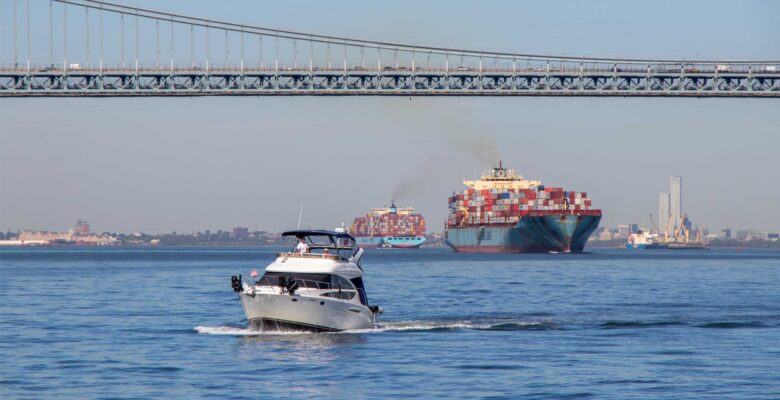
Container shipping alliances under threat by EU
Container shipping line alliances will from next April no longer enjoy their 15 year exemption from EU rules against anti-competitive agreements, because the EU believes that it was no longer supporting small carriers as intended and it does not boost competition any more.
The decision was made following a review that began in August 2022 that found that the Consortia Block Exemption Regulation (CBER) was no longer enabling smaller carriers to cooperate as a way of offering alternative services to compete with larger carriers.
This key sector has undergone significant structural changes, such as carriers’ consolidation, global alliances and vertical integration, resulting in new market conditions which became apparent during the coronavirus pandemic.
However, the EU’s evaluation has shown that a dedicated block exemption for shipping lines is no longer adapted to those new market conditions. A period over which, market turmoil should have underlined the need for cooperation between carriers, instead resulted in a transitory and exceptional phase of excess demand over effective capacity and of record profits for carriers.
The Consortia Block Exemption Regulation (CBER) was introduced in 2009, after the EC banned the old conference system, that had allowed container shipping lines to coordinate on pricing levels.
CBER allowed carriers to continue operating vessel-sharing agreements and pooling capacity, and was extended in 2014 and 2020, but the EC has now decided that CBER is not fit for purpose, as it does not fulfil the criteria of effectiveness, efficiency and EU added value.
The expiry of the CBER does not mean that consortia are prohibited in the EU, its just means that they are subject to antitrust rules that apply to all economic sectors and carriers will need to re-assess alliances and vessel sharing agreements (VSA) to/from Europe.
The danger of the EU’s action is that they are encouraging the lines to operate independently – which will be accelerated if other jurisdictions follow the EU’s lead – and that means carriers will downsize service portfolios, frequency and connectivity, which would reduce competition and push up freight rates.
Consortia Block Exemption Regulation review in UK
The UK’s Competition and Markets Authority (CMA) published its report into whether or not the Liner Shipping Consortia Block Exemption Regulation (the retained CBER) should be renewed or varied when it expires on 25 April 2024.
The CMA is proposing replacing the retained CBER with a Liner Shipping Consortia Block Exemption Order (CBEO), in order to ensure the continuity of container shipping for UK businesses, because if the retained CBER was allowed to expire without replacement, carriers may be deterred from making direct calls to UK ports in favour of serving the UK by transhipment to and from European ports.
With the EU now intent on ending CBER next April, it is almost certain that the UK will follow suit.
We will stay close to this topic, as it develops and ensure that you are kept up to date with the most important news.
If you have any questions or concerns relating the shipping alliances, the Consortia Block Exemption Regulation, or sea freight in general, please EMAIL Colin Redman
